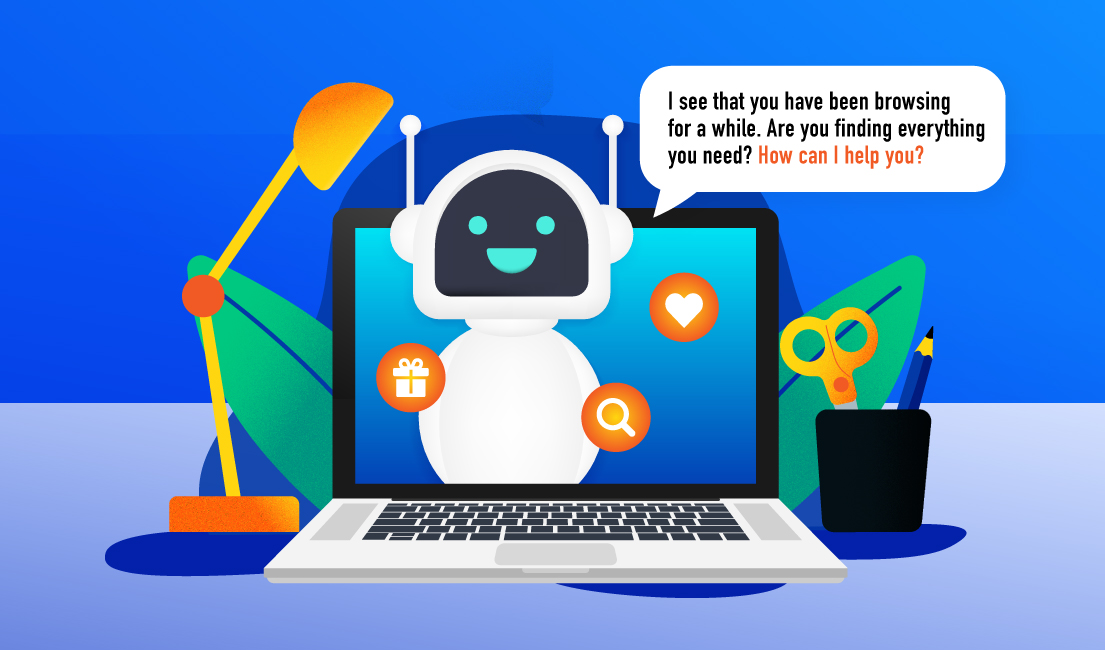3 min read
As e-commerce companies race to increase their share of wallet, they can use artificial intelligence (AI) to drive personalization and better engage existing customers.
For e-commerce companies, success is not just about getting a new customer to browse and purchase something from them. It is also about increasing their share of wallet by encouraging existing customers to buy more.
Investments in prospecting and customer acquisition can help you get traffic to your online store, but a comprehensive engagement and retention strategy is key to growing the lifetime value (LTV) of the customer. This is essential to ensuring a high return on investment and sustainable growth.
One way in which e-commerce players can build customer engagement and loyalty is through product recommendations. A recommendation engine analyzes customers’ past purchasing behavior on the website and uses the data to recommend similar or related products. For example, 35 percent of Amazon’s revenues come from recommended purchases.
However, recommendations will offer you high returns only if they are personalized and relevant to the user. According to Boston Consulting Group, brands that create personalized experiences for their customers increase their revenues by 6 to 10 percent, two to three times faster than those who don’t. Gartner also predicts a 15 percent increase in profits by 2020 for digital businesses that successfully personalize their messaging.
AI Makes Product Recommendations Personalized and Relevant
AI helps in building such personalized recommendations – not based on pre-defined rules, but on insights gained from historical customer data. AI solutions consolidate data on customers’ journeys, online behaviors and purchasing patterns, in past interactions with your brand. They then use this data to analyze patterns and predict future consumer behavior. This can, in turn, help recommend products that the customer is more likely to buy.
With each new transaction, AI learns more and more about your customers, making recommendations increasingly accurate and personalized.
Some of the biggest e-retailers today use recommendations effectively to increase sales and retain customer loyalty. Alibaba, for example, uses the customer data that it collects to create personalized experiences for its customers – product recommendations based on your past purchases, but also personalized offers from stores that use Alipay.
Hyper-Personalized and Proactive Targeting to Grow Share of Wallet
Now, AI solutions using machine learning such as Appier’s AIQUA are making personalization even more specific and granular, allowing marketers to consolidate data and insights across platforms to offer consumers a truly customized – and hyper personalized – experience.
AIQUA maximizes customer LTV through hyper personalization. It not only analyzes customer data your own platforms, but also allows you to leverage comprehensive and complete data on consumers outside your own app or website, thus discovering customer interest areas, preferences and shopping behavior across websites. You can then use these insights to offer hyper-personalized recommendations mapped to customer interest.
The result: higher conversions and shortened time to purchase, which drives up profitability.
Take the example of a customer who frequently buys clothes on everythingshopping.com, but buys baby products from babybuy.com. AI can help everythingshopping.com analyze the buyer’s shopping behavior on other websites to identify what drives conversion. This data can then help the brand identify and micro-segment users at a granular level and deliver personalized and relevant recommendations to them across devices.
Such AI solutions help you reach out to the right customer with the right product on the right channel, increasing likelihood of conversion. Accurate and personalized recommendations build customer loyalty by making the shopping experience easy for the customer, who can look for and purchase items they need without having to spend too much effort in the search.
For e-commerce websites, this means faster and higher conversions, as well as the increased ability to upsell items that are aligned with the customers’ interest.
In a world where customer expectations are rising exponentially, e-commerce players should leverage AI to proactively reach out to customers and stay ahead of their demands.
AIQUA – Our marketing automation platform runs most-advanced AI models to help you understand and predict your customers’ future behavior. Request your free demo now.



